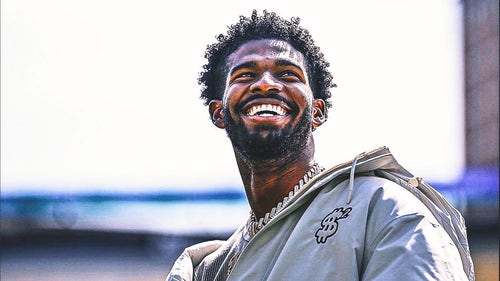
Elite players are worth big deals
Call it a “rite of winter” — high-dollar contracts handed out to free agents, and fans and media upset about the same.
On a certain level, it’s understandable. After all, these players are living out our fondest dreams and being paid sums that strain the imagination. Who among us wouldn’t love to pay the rent in such a manner? From the outsider’s perspective, it’s difficult to think of playing baseball as “work” (though it demonstrably is), and that ballplayers are so richly compensated only adds to the notion that they’re a little bit too graced with good fortune.
Take Albert Pujols, for instance. By all accounts, he’s an exemplary human being, and he’s obviously on the shortlist of greatest players ever to lace up the spikes. Still, you can be forgiven if you recoil from some of the numbers being bandied about. It’s possible that Pujols’ next contract will pay him $30 million or more per season. Can anyone really be “worth” that much money? On a human level, of course not. But in reality, Pujols is worth whatever the market pays him. The same goes for every other ballplayer in the free-agent era. So why does it bother us so?
First, there’s probably a tinge of envy at work. For obvious reasons laid out above, most us would love to swap places (and, by extension, work ethics and innate abilities) with a major league ballplayer. While the rest of us are making, selling and repairing widgets, the ballplayers are loping around and playing catch in the sun and being paid millions for it. It hardly seems fair.
What’s strange, though, is that team owners are spared this particular flavor of outrage. After all, ballplayers are necessarily self-made. Major League Baseball is a ruthless meritocracy, and only the best players in the world make it to the show, let alone stay there. A number of owners, meanwhile, inherited their fortunes and became team owners because of connectedness rather than earnest toil. Add to all that the fact that owners are “orders of magnitude” more wealthy than the players they employ. Sure, owners don’t play the games we dream of playing, but running a close second on the sports fan’s list of goals that will forever elude him is buying a team, delivering mandates from on high and lording over everyone from All-Star center fielder to peanut vendor. In other words, team owners — like the players — have something we want and are wealthy beyond comprehension. Unlike the players, however, many owners did nothing to earn their standing. Still and yet, it’s the players who receive most of our scorn.
Second, there’s a widespread belief that increases in player salaries affect increases in ticket prices. No doubt, you’ve heard an owner or general manager or even columnist opine that the cost of Player X’s bloated new contract will be passed on to the consumer. Bleacher seats cost more this season? Blame the superstar who just signed for nine figures. It’s a tidy story, and it certainly appeals to the rank-and-file fan who is looking for another reason to blame the players, but it’s simply not true. Ticket prices are a function of supply and demand and have almost nothing to do with player salaries. If an owner raises the price of admission, it’s because he believes the market will bear it — i.e., fans are willing to pay it. It’s not because he needs to cover labor costs (exposed pocket linings notwithstanding). If all a team needed to do in order to raise revenues is raise ticket prices, then, well, tickets would grow more expensive by the minute and pretty much every book ever written about business would need to be revised. Similarly, you don’t see ticket prices go down every time an expensive player is traded or signs elsewhere. Of course, it’s bad PR for an owner to admit he’s ramping up prices because the market says he can get away with it, and that’s why owners sometimes actively encourage these misperceptions. Don’t believe them, though.
At the end of the day, the owners are captains of industry, and they’re not going to pay top dollar for baseball talent unless they believe it helps the brand and the bottom line. That’s why ballplayers are so highly paid — the guys who write the checks have determined they’re worth it. If you want to argue that this reflects misplaced priorities on the part of society at large, then you certainly can make that case. Is it obscene that ballplayers make so much? Perhaps, but it’s no more obscene than the golden parachutes doled out to disgraced CEOs or the $20 million-ish that Jim Carrey makes for each of his wretched films. The harsh reality is that the skills of a major league ballplayer are rarer and — in the monetary sense — worth more than the skills of those of us who, say, teach fifth grade, hang drywall, or write sports columns. Simply put, the rest of us are far more replaceable than elite ballplayers.
So you’re free to become righteously indignant when Pujols or Adrian Gonzalez or Felix Hernandez or Chase Utley or whoever signs his next contract. Just know that the dimensions of that next contract don’t affect you.



